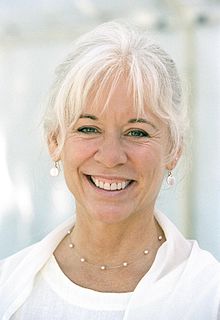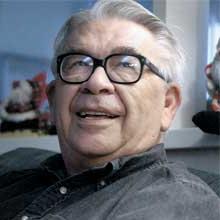A Quote by Muhammad Iqbal
The possibility of a scientific treatment of history means a wider experience, a greater maturity of practical reason, and finally a fuller realization of certain basic ideas regarding the nature of life and time.
Related Quotes
We have tried everything to get rid of suffering. We have gone everywhere to get rid of suffering. We have bought everything to get rid of it. We have ingested everything to get rid of it. Finally, when one has tried enought, there arises the possibility of spiritual maturity with the willingness to stop the futile attempt to get rid of it and, instead, to actually experience suffering. In that momentous instant, there is the realization of that which is beyond suffering, of that which is untouched by suffering. There is the realization of who one truly is.
A tragic mistake that is often made is to assume that the will of God is bound to be something very dull and uninviting, if not positively unpleasant. Consciously or not some persons look upon God as a hard taskmaster, or a severe parent. . . . The truth is that the will of God for us always means greater freedom, greater self-expression, newer and brighter experience, wider opportunity of service to others-life more abundant.
To consider the matter aright, reason is nothing but a wonderful and unintelligible instinct in our souls, which carries us along a certain train of ideas, and endows them with particular qualities, according to their particular situations and relations. This instinct, 'tis true, arises from past observation and experience; but can anyone give the ultimate reason, why past experience and observation produces such an effect, any more than why nature alone should produce it?
It must be for truth's sake, and not for the sake of its usefulness to humanity, that the scientific man studies Nature. The application of science to the useful arts requires other abilities, other qualities, other tools than his; and therefore I say that the man of science who follows his studies into their practical application is false to his calling. The practical man stands ever ready to take up the work where the scientific man leaves it, and adapt it to the material wants and uses of daily life.
Direct experience is inherently too limited to form an adequate foundation either for theory or for application. At the best it produces an atmosphere that is of value in drying and hardening the structure of thought. The greater value of indirect experience lies in its greater variety and extent. History is universal experience, the experience not of another, but of many others under manifold conditions.
As time passed I became an avid reader of popular scientific books, wanting to know as much as I could about the world in which I lived. Gradually I began to see a pattern of nonsense in much scientific writing. Scientific explanations given regarding the origins or functioning of various phenomena simply didn't make sense.
Although the warrior's life is dedicated to helping others, he realizes that he will never be able to completely share his experience with others...Yet he is more and more in love with the world. That combination of love affair and loneliness is what enables the warrior to constantly reach out to help others. By renouncing his private world, the warrior discovers a greater universe and a fuller and fuller broken heart. This is not something to feel bad about; it is a cause for rejoicing.






































